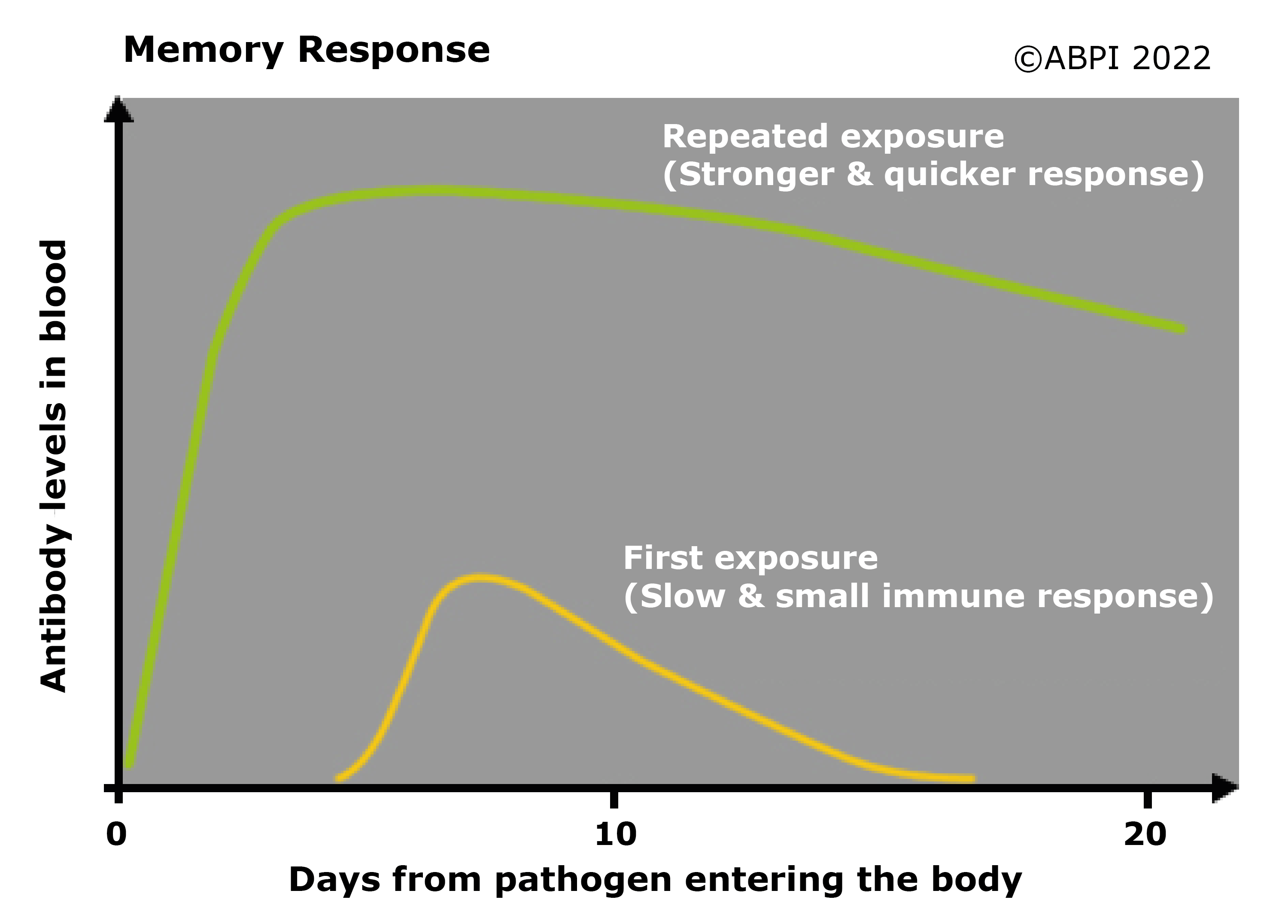This topic takes on average 55 minutes to read.
There are a number of interactive features in this resource:
 Biology
Biology
When your body is first infected with a pathogen, the main task of the immune system is to combat the infection and produce antibodies against the pathogen. However, it also produces memory lymphocytes that remain in your body for many years and remember the pathogen in case it returns. This is called your immune memory and is the reason why you can only catch infections like chickenpox once. If you get infected a second time, your immune system is already prepared for the pathogen and can quickly make enough antibodies to kill the infection before any symptoms are felt. Vaccination takes advantage of this feature of the immune system.
This graph shows how the levels of antibodies in the blood build up slowly when you are first exposed to a particular pathogen. It takes over 5 days for the antibodies to reach a level that will fight off the infection. During this time, you will feel the symptoms of the infection and damage will be caused to your body tissues. In serious diseases, this can be fatal.
After you have recovered, your immune system retains a number of memory lymphocytes. These can react quickly if you are exposed to the same antigen in the future. If the same pathogen infects you again, more antibodies are produced in a shorter amount of time. The antibodies quickly reach the level that will protect you and when this happens, you may not even feel any symptoms of the illness. This is called the memory response.
